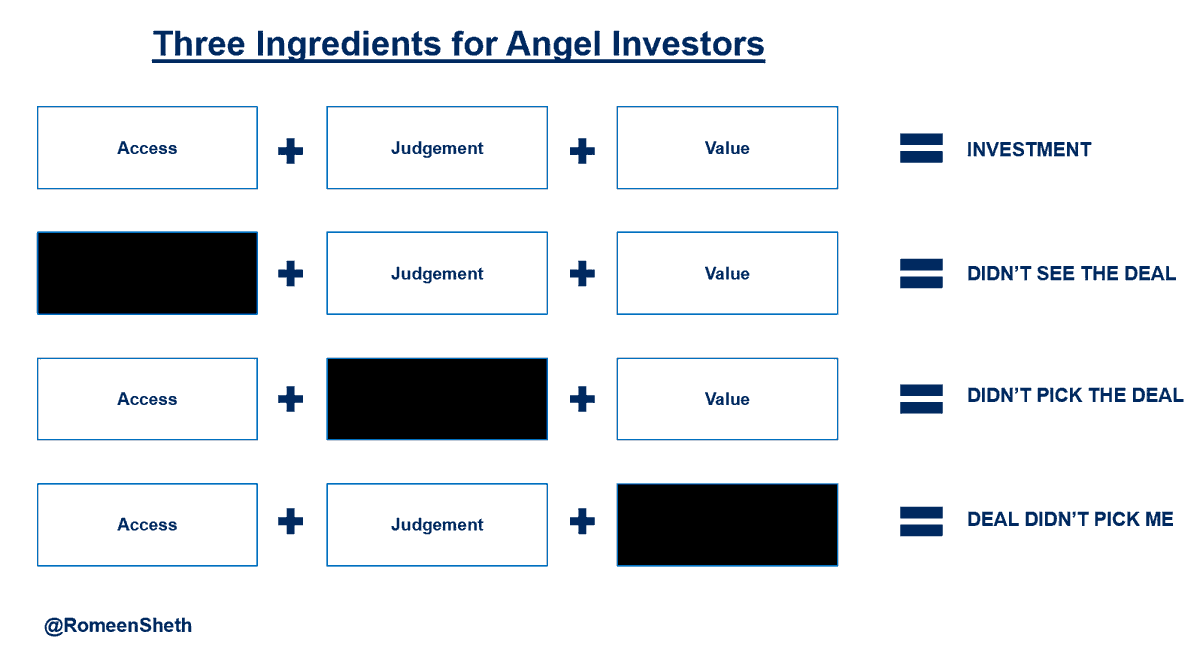
0/ Who’s out there building Lambda School for BizOps? I’m super interested in funding the right team to solve this problem.
We have ISA schools / online courses for Eng, Product, Sales, Design, but I haven’t seen anything on BizOps.
This is a big big big opportunity [THREAD]
We have ISA schools / online courses for Eng, Product, Sales, Design, but I haven’t seen anything on BizOps.
This is a big big big opportunity [THREAD]
1/ First, what is BizOps?
BizOps is one of the most critical functions in a fast growing startup. 3 big objectives:
1. Tie the glue together between departments
2. Define and monitor a clear set of universal metrics
3. Tease out the natural tension that sits between teams
BizOps is one of the most critical functions in a fast growing startup. 3 big objectives:
1. Tie the glue together between departments
2. Define and monitor a clear set of universal metrics
3. Tease out the natural tension that sits between teams
2/ But here's the problem.
Right now, EVERY BizOps job posting finishes with “Prefer 2-4 years of experience in Investment Banking or Consulting.”
Ok, so what do you do if you weren't an ex-banker or consultant? And why did we decide that that background makes the most sense?
Right now, EVERY BizOps job posting finishes with “Prefer 2-4 years of experience in Investment Banking or Consulting.”
Ok, so what do you do if you weren't an ex-banker or consultant? And why did we decide that that background makes the most sense?
3/ There’s some validity to the banker/consultant train.
But if we’re being honest, the biggest reason those backgrounds are sought after is because it’s an easy/lazy filtering mechanism.
Why do you hire the Harvard grad? Same reason you hire the candidate from McKinsey.
But if we’re being honest, the biggest reason those backgrounds are sought after is because it’s an easy/lazy filtering mechanism.
Why do you hire the Harvard grad? Same reason you hire the candidate from McKinsey.
4/ But every year, those backgrounds are getting further and further removed from the ops of high growth startups.
You don’t learn the language, the tools or the metrics by being a consultant or banker.
The faster you get into the guts of a startup, the faster you learn.
You don’t learn the language, the tools or the metrics by being a consultant or banker.
The faster you get into the guts of a startup, the faster you learn.
5/ So what’s the implication?
SUPPLY SIDE - If you want to hire a BizOps person, you’ve got a small and shrinking pool (ex-bankers and consultants who are not in tune with your needs)
DEMAND SIDE - If you want to get into BizOps, you have 0 entry ramp into the role.
SUPPLY SIDE - If you want to hire a BizOps person, you’ve got a small and shrinking pool (ex-bankers and consultants who are not in tune with your needs)
DEMAND SIDE - If you want to get into BizOps, you have 0 entry ramp into the role.
6/ On the DEMAND side, you might be thinking - well how many people “want to get into BizOps.”
Not many if you ask it that way.
The right question is not “how many people want to get into BizOps”, it’s “how many would try to get into BizOps if presented the opportunity.”
Not many if you ask it that way.
The right question is not “how many people want to get into BizOps”, it’s “how many would try to get into BizOps if presented the opportunity.”
7/ Imagine how high impact this company would be.
If every kid going into a dead end liberal arts degree harnessed that curiosity and paired it with something tangible (because let’s face it, not everyone will be an engineer), the intangible benefits to society would be 🚀🚀🚀
If every kid going into a dead end liberal arts degree harnessed that curiosity and paired it with something tangible (because let’s face it, not everyone will be an engineer), the intangible benefits to society would be 🚀🚀🚀
8/ This has N-of-1 potential (h/t @arjunsethi for the concept). Unlike BizOps, Engineering lends itself to be 1-of-N.
What does that mean? You can be the single credential for BizOps; harder to do that in Engineering - think about how many credentials are already out there.
What does that mean? You can be the single credential for BizOps; harder to do that in Engineering - think about how many credentials are already out there.
9/ Someone’s going to make a lot of money and drive a lot of impact building in this space.
Who’s building Lambda for BizOps?
Let’s replace “2 years of Consulting Experience” on every BizOps JD with the name of your company.
This is long overdue.
Who’s building Lambda for BizOps?
Let’s replace “2 years of Consulting Experience” on every BizOps JD with the name of your company.
This is long overdue.
• • •
Missing some Tweet in this thread? You can try to
force a refresh





